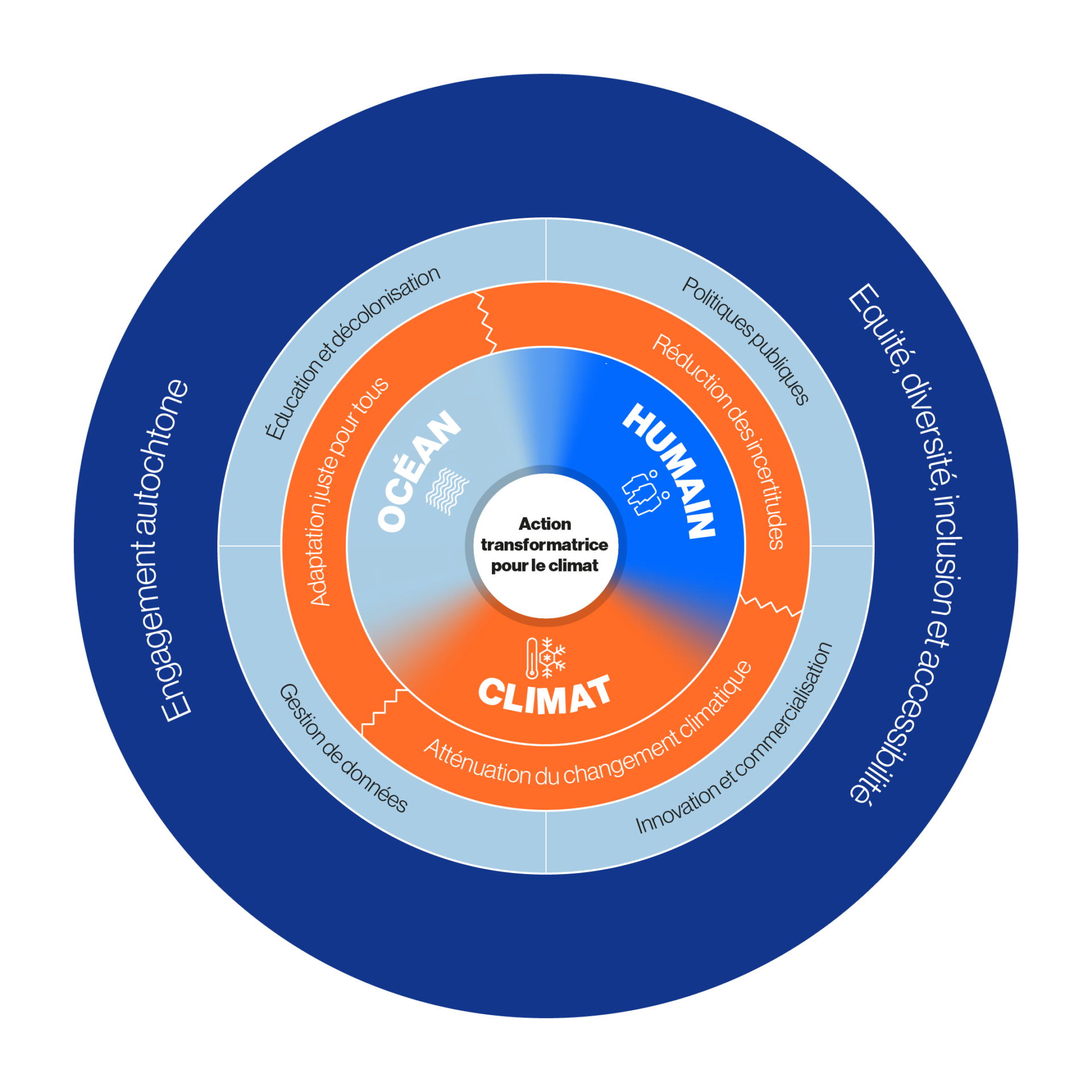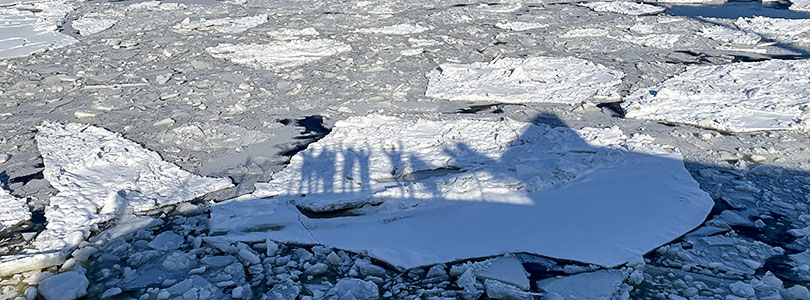Transformer l’action pour le climat : une approche axée sur les océans (Programme TAC)
Une subvention historique de 154 414 655$ a été attribuée à quatre universités canadiennes partenaires (Université Dalhousie d’Halifax, Université du Québec à Rimouski, Université Memorial de Terre-Neuve et Université Laval) par le Fonds d’excellence en recherche Apogée Canada. Le consortium réalisera de 2023 à 2030 un ambitieux programme de recherche sur le rôle de l’océan dans les changements climatiques et sur les mesures d’atténuation aux changements climatiques en milieu marin.

Diverses sources de données montrent que l’activité humaine à haute intensité carbonique a déstabilisé des éléments cruciaux du système terrestre qui déterminent le climat.
À ce jour, l’océan a absorbé 40% des émissions liées à la combustion des énergies fossiles et 90% de la chaleur provenant du réchauffement climatique anthropique par un ensemble de processus formant la « pompe à carbone océanique ». Or l’océan se transforme à un rythme incertain et sa capacité de protection contre les effets de l’activité humaine pourrait faire défaut, ce qui exacerberait grandement les changements climatiques et compromettrait les efforts mis en œuvre pour atteindre la carboneutralité.
Pour s’adapter au climat qui change, l’espèce humaine doit très vite acquérir une meilleure connaissance des mécanismes de réaction des océans à ce phénomène. Le programme Transformer l’action pour le climat (TAC) vise à développer les solutions transformatrices requises et à démontrer leur efficacité. L’initiative propose trois thèmes de recherche interdépendants axés sur l’Atlantique Nord, qui absorbe 30% du carbone océanique mondial. Elle produira des études transdisciplinaires pertinentes pour la société, en collaboration avec des groupes autochtones et non autochtones, les gouvernements et des partenaires de l’étranger, pour orienter les mesures de lutte contre les changements climatiques au Canada.
Par une observation plus assidue et réfléchie des principaux processus océaniques en jeu dans l’Atlantique Nord, l’initiative tempérera certaines grandes incertitudes relatives au lien entre l’océan et le climat au moyen, entre autres, d’une amélioration de l’observation des flux de carbone air-mer, de la convection profonde et de l’absorption de carbone par le plancher océanique. Les récentes avancées technologiques permettront de faire une synthèse des données océaniques de plus haut niveau que ce n’était possible auparavant, synthèse qui orientera directement les politiques climatiques.
Le programme TAC est structuré autour de trois grands thèmes :
Océan Étudier le cycle du carbone dans l’océan et les autres processus pertinents pour réduire les incertitudes du rôle de l’océan dans les changements climatiques.
Climat Trouver et explorer des solutions naturelles et techniques capables de réduire l’empreinte carbone des industries océaniques et de donner une impulsion aux technologies propres d’observation et de surveillance. L’initiative concevra des approches inédites de lutte contre les changements climatiques au moyen de mesures d’atténuation élaborées en collaboration, comme l’accélération de l’absorption naturelle et artificielle du carbone par l’océan.
L’humain L’initiative produira de nouvelles connaissances et des méthodes pratiques qui soutiendront la justice et l’équité dans l’adaptation aux interactions entre océans, climat et populations humaines. La collaboration avec les communautés autochtones et les collectivités côtières ainsi que les nouvelles méthodes de prise de décision et approches de gouvernance et d’élaboration de politiques favoriseront des mesures d’adaptation plus équitables et durables pour la transition à une économie carboneutre.
L’initiative entraînera une mobilisation des connaissances transformatrices, qui reposera sur des communications pertinentes, convaincantes et applicables. Elle explorera aussi divers modes de formation aptes à donner aux différents acteurs l’autonomie requise pour passer des connaissances à l’action.

Un moyen de propulsion : les accélérateurs de la transformation
Le programme TAC sera soutenu par quatre accélérateurs de transformation ayant des thématiques spécifiques : gestion des données de recherche, politiques publiques, stratégies en innovation et commercialisation et l’Agora de l’UQAR qui permettra de propulser le transfert de connaissances à travers l’éducation, les arts et la décolonisation.
Pour en savoir plus sur les accélérateurs de transformation
Actualité
Pour en savoir plus
Si vous désirez obtenir davantage d’information au sujet du programme TAC, vous pouvez à l’UQAR contacter les personnes suivantes: